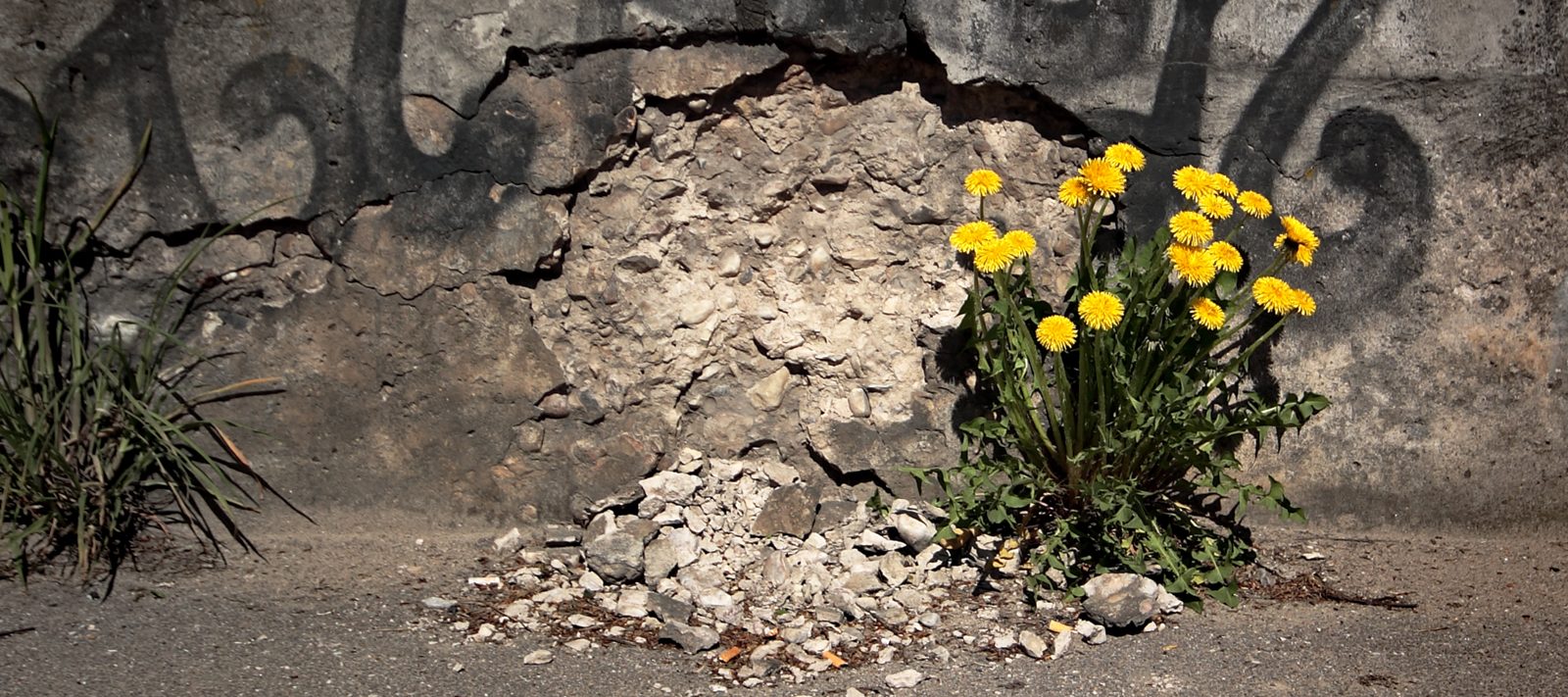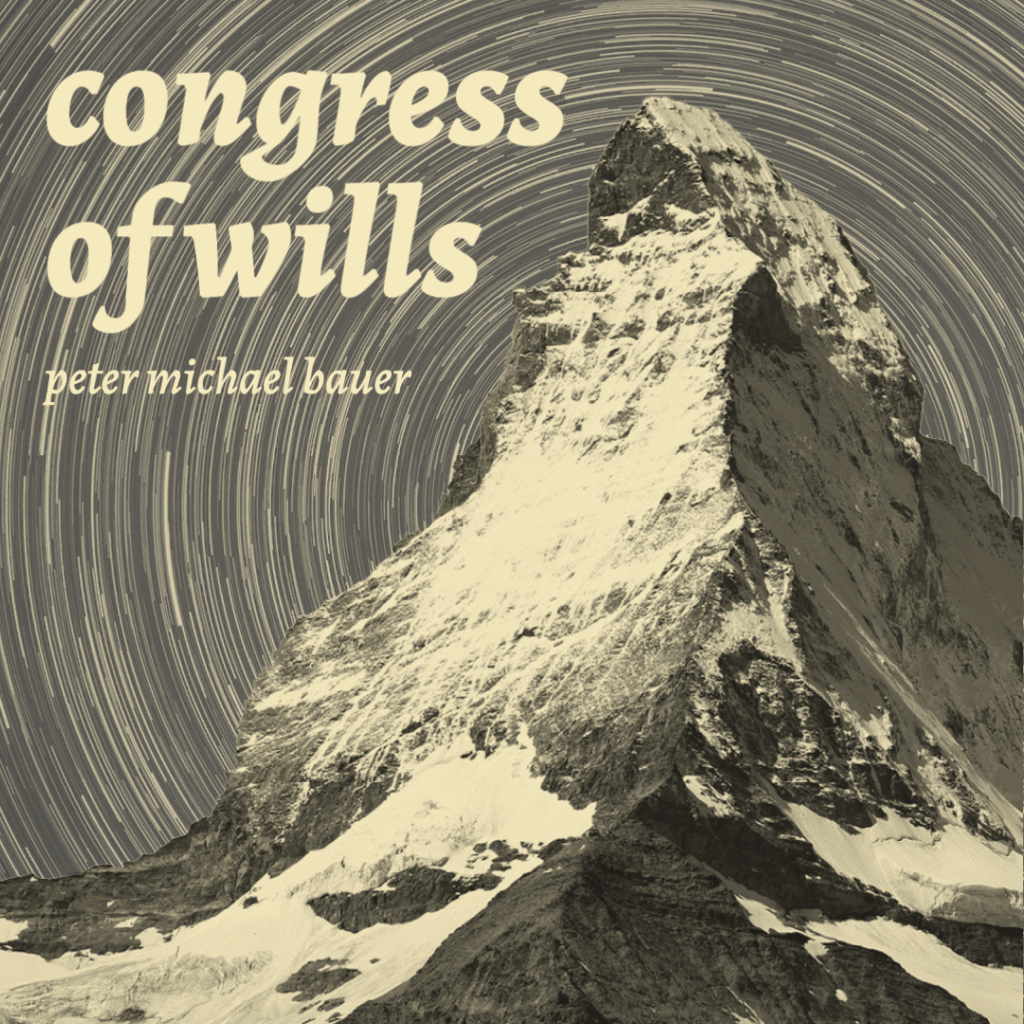I was recently interviewed by Patrick Farnsworth for his Last Born in the Wilderness Podcast. He was particularly taken by my “Congress of Wills” idea around wildness. We spoke about the process of collapse and its relationship to rewilding. It was a great interview. Check it out here:
I was recently on the Redefining the Good Life podcast. Aysin had me tackle the question: can you think about the end of civilization AND still be an optimist? Check it out:
I was recently interviewed on the Untaming podcast. If you’re looking for a new podcast that is centered around rewilding and justice, this is a great one to check out. I ended up ranting for so long that Emily split the interview into to parts. Here they are:
Months ago I asked my facebook and instagram audience if they had questions that I could answer in a podcast. I finally delved into the well of inquiry, and only got to the first three questions:
A friend asked: “Why bother?”
Pat Craig asked: On the problem of the lack of access to land for most people. At least land that one could hunt/forage or garden on. How can people who do not have easy access to land practice rewilding in a meaningful way?
Will Dutch asked: How do you see rewilding co existing with the modern city? Do you see the new global awareness of the climate crisis being a catalyst for new thinking of rewilding?
If you have more questions around rewilding to ask me, hit me up on social media and I will add these questions to the queue. Hope you enjoy this one.
Photo by Rachel Olson
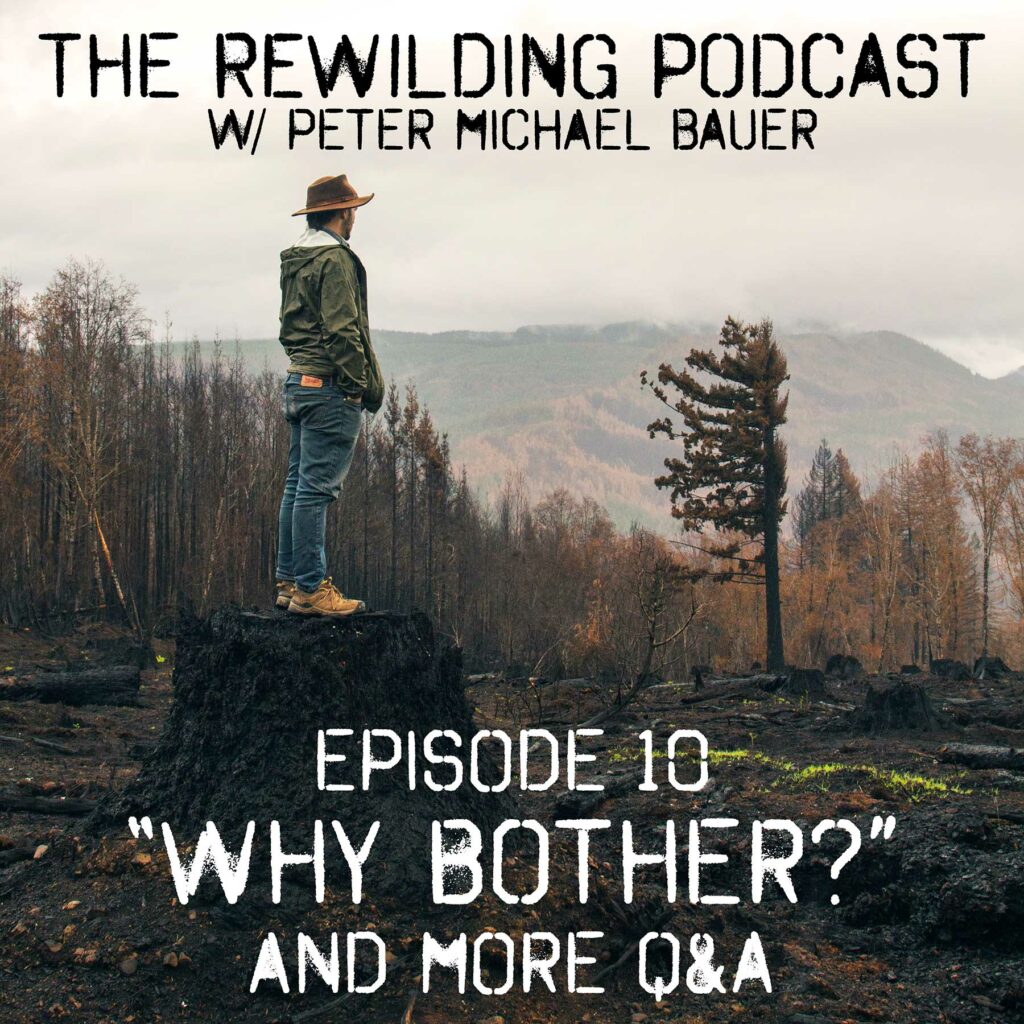
Popular culture likes to tell us that modern men are still just cavemen that masquerade in suits. That they are really just big dumb brutes, bent on domination to get their way. Deep down, their urges for violence (and sexual violence in particular) are simply part of their biology. Where does this mythology come from and why? What does rewilding masculinity look like–and where do we even start? In this episode I interview Dr. Martha McCaughey, professor of sociology at Appalachian State University and author of the book “The Caveman Mystique” as we explore these concepts in depth.
Dr. McCaughey’s Books
References
The Egalitarians: Human and Chimpanzee
Why everything you know about wolf packs is wrong
Exploring Prehistory: How Archaeology Reveals Our Past
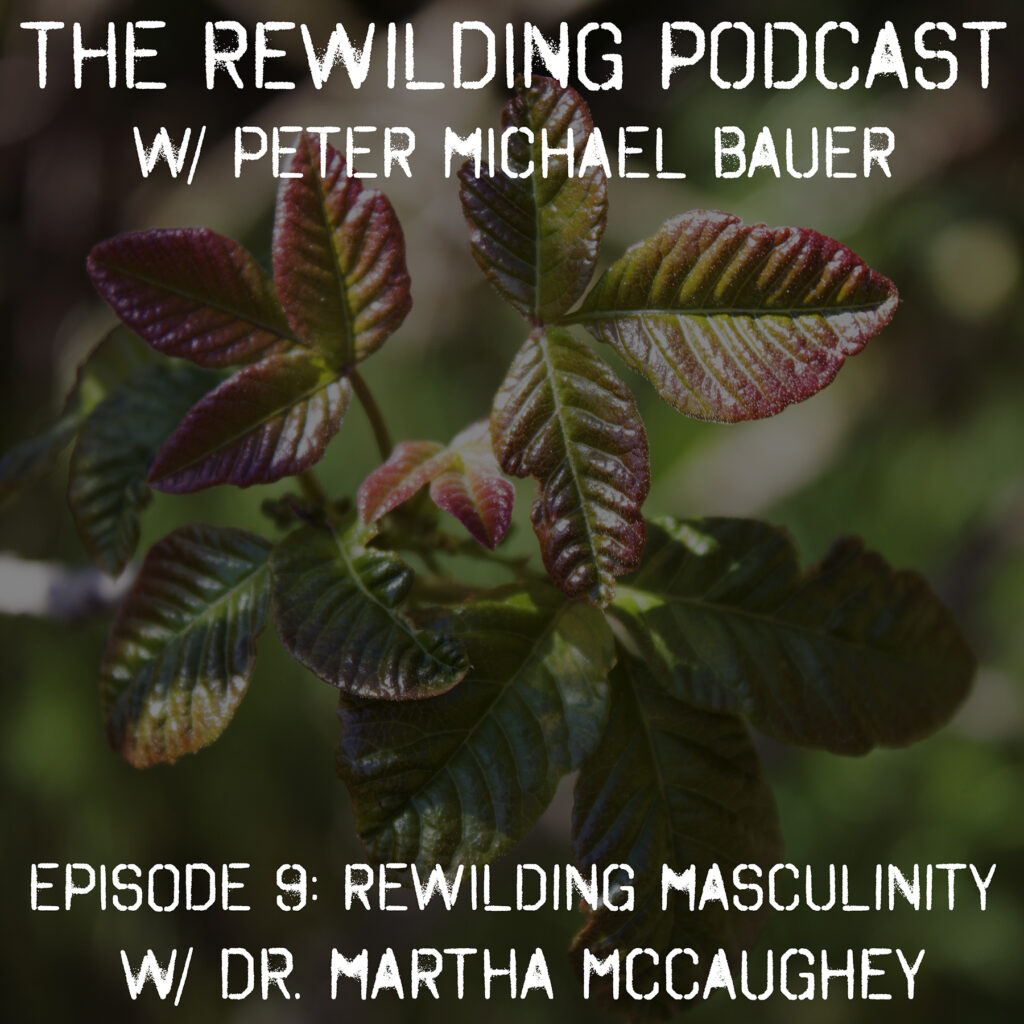
If not for COVID-19, I’d be sitting in Jim Rigg’s wikiup at Ark Park and educating the masses about bone tools (among other related rants) by day and expanding my mind with the help of some very friendly fungi by night–at the Oregon Country Fair. Sadly, instead I made this video of my bone talk for people who are missing country fair. 🖤😢🦴👨🏫🌄🍄😲 Enjoy!
In this episode I speak with Dr. David Lewis, historian, anthropology professor and member of the Confederated Tribes of Grand Ronde. We talk about the importance of learning the history of your place, what it’s like being a bridge for cultures, ideas for being an ally, among many other interesting things.
Dr. David Lewis Website:
https://ndnhistoryresearch.com/
David’s Facebook
https://www.facebook.com/coyotez
–
Books for Further Study
Native Americans and the Environment
What Kinship Is-And Is Not – Marshall Sahlins
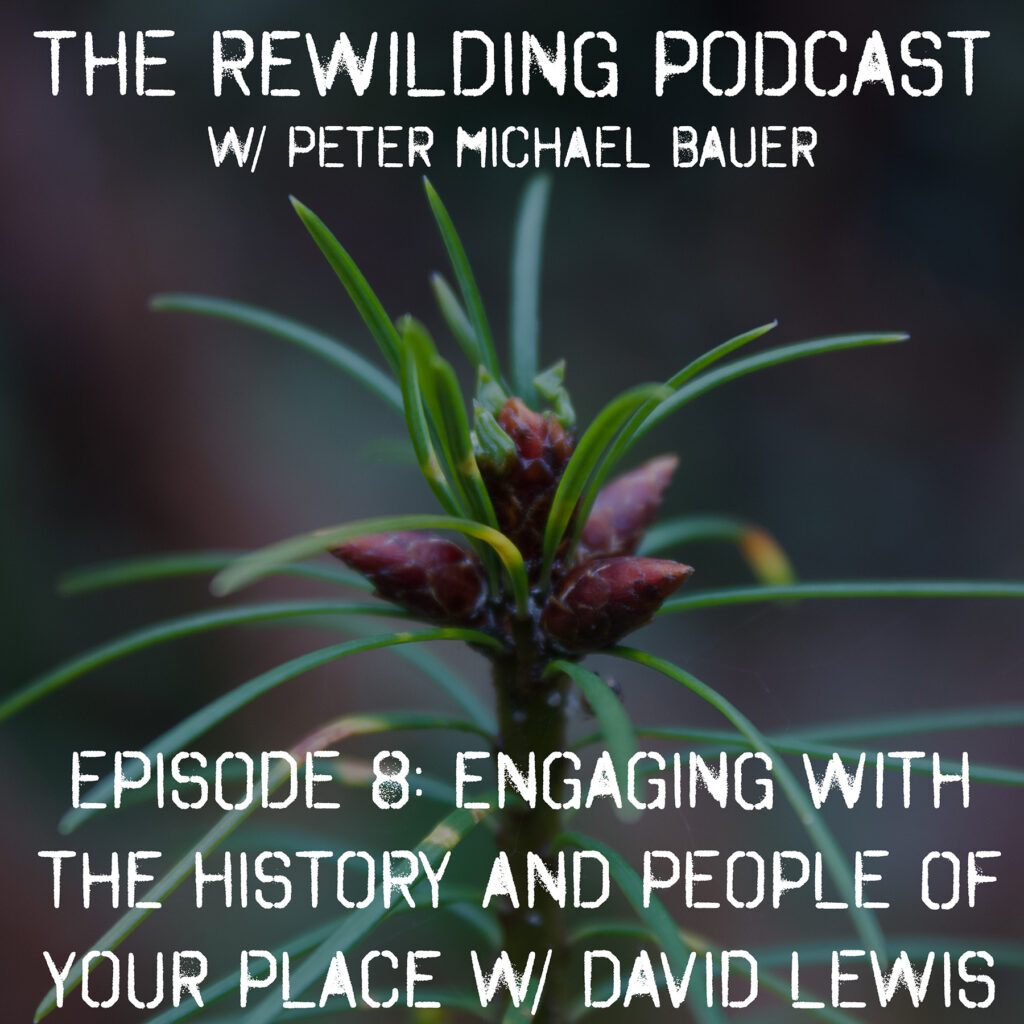
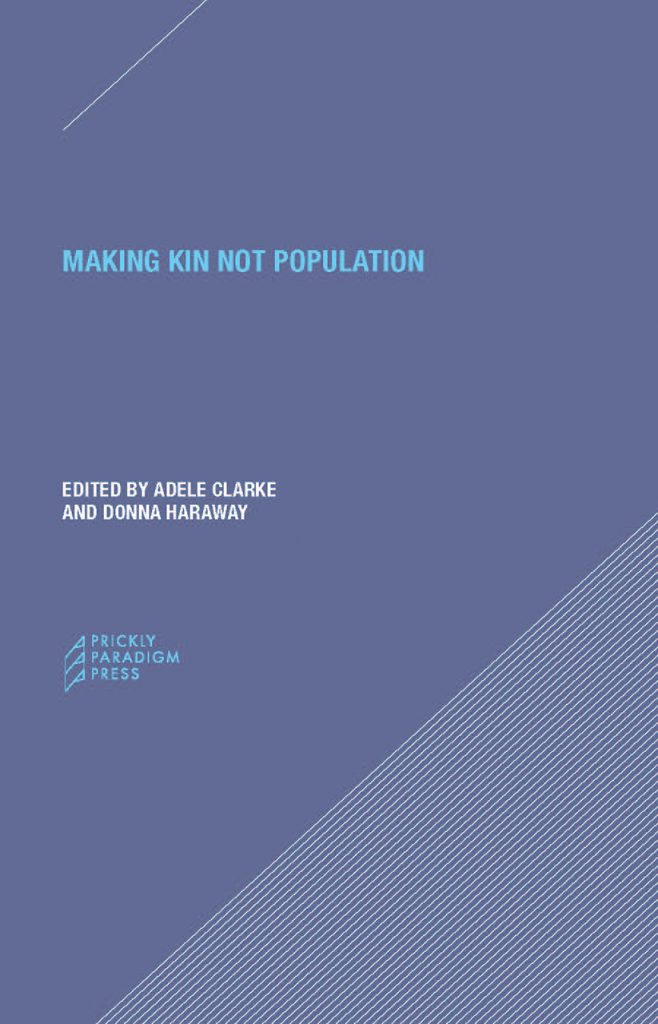
“Recognizing possibilities of other kinds of intimacies–not focused on biological reproduction and making population, but caretaking precious kin that comes to us in diverse ways–is an important step to unsettling settler sex and family.” – Kim TallBear
Thomas Malthus was a racist, and his ideas around “population” growth have long been challenged, particularly by the left. Sadly, the left continues to conflate his racism, problematic stances, and miscalculations with the discussion of the ever-growing number of humans on the planet in general itself. In many circles, the mere mention that there are too many humans is met with accusations of ecofascism. It was with great pleasure that my friends at Queer Nature recommended to me the book Making Kin Not Population, a collection of essays from feminist scholars attacking these very issues.
The number of human bodies existing at any given moment has been increasing exponentially ever since the “Neolithic Demographic Transition.” Essentially some societies began to farm for the majority of their subsistence and–for many complex reasons–this type of full-time agriculture causes populations to dramatically increase beyond the bounds of what some have deemed the “carrying capacity” of a particular ecosystem. While it may be a relative symptom of the complexities of farming, this growth is perhaps the biggest reflection of the sixth extinction: agricultural societies have been converting diverse biomass into human mass for 10,000 years. This is not sustainable. There will be a population decline, as Malthus predicted. Hopefully not as he would have planned it.
Making Kin Not Population is a great lift-off point to rethinking the discussion around so-called “population” growth. Beginning with discussing the problematic aspects and origins of the very concept of “population” as an inhumane generalization that reduces individuals within a complex system to a number on a graph. The term “population” doesn’t represent the actual make-up of those populations, or even the impact of populations-within-populations. While the “population” of India is much larger than the United States, the “population” of the United States contributes much more to the consumption that is fueling climate change. You can’t simply say “population” without integrating these complexities.
The left avoids this conversation because it tends towards discussions of “population control.” Ironically, the most surprising thing I learned in Making Kin was that racist population control is already a deeply intrinsic practice within state-level societies. Rather than talk about de-humanized people on a graph, the concept of “population” must be dismantled and intertwined with “reproductive politics” and “reproductive justice.” I can’t think of a better response to the claims of fascism, than this.
When the left casts the dark shadow of Malthus over the mere discussion of this topic, it does more harm than good. As Jason Godesky recently pointed out in his essay “Overpopulation,” the population decline is inevitable. What isn’t inevitable is how we approach it. By refusing to discuss it, the left inadvertently leaves the inevitable in the imaginations of the very fascists they claim to be fighting against.
The main point of Making Kin however, aside from deconstructing the ideas around population, is to inspire people to imagine relationships beyond the human reproductive ones. Kinfolk are defined as “parts of one another to the extent that what happens to one is felt by the other, such that we live each other’s lives and die each other’s deaths.”
I’m left wondering about the aspects of material determinism, that play a huge role in population dynamics, and how imaginations must go beyond just envisioning how we relate to one another, but literally how we make our living and what strategies we use for subsistence. If agricultural subsistence innately charges humans to reproduce beyond the carrying capacity of their locales (as seen with every full-time agricultural society), than we must address that root catalyst, rather than just overlaying a narrative, or relying solely on a narrative, to counter-act the physics involved. I see so many solutions that present as “we just have to act nicer to one another” rather than looking at the environmental factors that led us down this path to begin with. Our actions are largely dictated by the way we get our food and interact with ecosystems. Root causes can be alleviated with will power, but never truly solved by them. Essentially what I am saying is that I do not think that culture is above physics. Stories are only possible through the access to the physical resources that bring them to life; a fire needs fuel. A fire will burn until it runs out of fuel.
We need to counter the population explosion with a re-design of our subsistence strategies (which lies at the physical roots: it’s not possible to grow at this rate outside of full-time agriculture) *and* a great re-imagining of kinship, in hand with one another. Domestication is essentially the antithesis of kinship; forcing plants and animal lives into an unequal relationship of servitude for the sole benefit of humans. A return to kinship must be at the root of life: the kin we eat to exist, and how we go about eating them. While it may not be possible to return to hunting and gathering full time for everyone, there are many regenerative forms of subsistence that don’t create the same kinds of population problem (i.e. horticulture & permaculture). As Michell Murphy states, “To be against population is to foster a multitude of ways of living in kinship differently that already exist all around us, as well as to continue to create speculative otherwises.” If you’re looking to approach this highly problematic topic with fresh and truthful eyes, this book is the best resource that I am aware of.
Also, I’d love to chat about this with folks over at the Rewild Forum.
In this episode I chat with Woniya Thibeault, ancestral skills practitioner and teacher, and recent cast member of the History Channel’s ALONE show. Woniya and I cover a large range of topics, from the challenges of reality TV to how starvation effects one’s body to practical things people can do in this strange time of a global pandemic to wiping your butt with nature’s alternatives to toilet paper. It was a wide ranging conversation, and I hope you enjoy it as much as I did.
Links
Woniya’s Website
Woniya’s Patreon
History’s ALONE Show
In this episode I chat with Dr. Leonard Martin, retired professor of the Behavioral and Brain Sciences Program Psychology program at Georgia University. We talk about the important distinction between what James Woodburn labeled “Immediate-Return” and “Delayed-Return” societies, and how the transition from immediate-return to delayed-return transformed human culture, psychology, and behaviors. Dr. Martin has written several essays on how this transition may have affected our mental health and thoughts. In particular, how has this changed (or created) what seems like an innate human quality, the search for meaning…
Articles by Dr. Leonard Martin
I-D Compensation and Mindfulness
I-D Compensation and Meaning in Life
Wake-up Call from a Close Brush with Death
Book Resources
The Lifeways of Hunter-Gatherers: The Foraging Spectrum, by Robert Kelly
The Diversity of Hunter-Gatherer Pasts, Edited by Bill Finlayson & Graeme Warren
The Egalitarians: Human and Chimpanzee, by Margaret Power
Essays
Social dimensions of death in four African hunting and gathering societies
Today, my guest is Lucy O’Hagen, the founder and head of Wild Awake! Ireland. I’ve followed Lucy’s work for several years and continue to feel deeply inspired and in awe of the programs that she creates. I’ve been wanting to interview Lucy for some time now. Firstly to elevate her school, but also, while our organizations are similar in style and content, the cultural and historical context in which they sit is very different. This is something I find interesting and wanted to know more about. If rewilding is to be widely appealing, we need to understand the multiple contexts that make it look and feel different so that we can understand how to appropriately rewild in these contexts. One that stands out to me and is colonialism and how it affects different groups and demographics around the world, and how this influences rewilding. This is an area that Lucy and I explore in this episode. Enjoy!
Lucy O’Hagen
WildAwake! Ireland (website) http://wildawake.ie/
Instagram https://www.instagram.com/wildawakeireland/?hl=en
Facebook https://www.facebook.com/NatureskillsIreland/
Lucy’s Inspirations:
Last Child in the Woods by Richard Louv http://richardlouv.com/books/last-child/
Forest School https://www.forestschoolassociation.org/what-is-forest-school/
8 Shields http://8shields.org/about/
Circle of Life Rediscovery (https://www.circleofliferediscovery.com/)
Woodcraft School (https://www.woodcraftschool.co.uk/)
Lynx Vilden (https://www.lynxvilden.com/)
Braiding Sweetgrass https://milkweed.org/book/braiding-sweetgrass
Links to add to our conversation:
What is Settler Colonialism?
https://en.wikipedia.org/wiki/Settler_colonialism
Irish Travelers Q&A: What does ethnic recognition mean for Irish Travellers?
Original Instructions
https://www.simonandschuster.com/books/Original-Instructions/Melissa-K-Nelson/9781591430797
Tending the Wild by M. Kat Anderson
https://www.ucpress.edu/book/9780520280434/tending-the-wild
The word-hoard: Robert Macfarlane on rewilding our language of landscape
https://www.theguardian.com/books/2015/feb/27/robert-macfarlane-word-hoard-rewilding-landscape
Irish Language Learning Game
Irish Gods & Mythology
https://en.wikipedia.org/wiki/Tuatha_D%C3%A9_Danann
https://www.connollycove.com/celtic-gods-goddesses-ancient-ireland/
